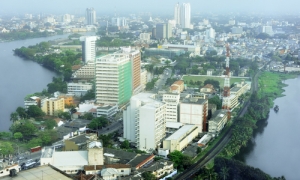Sign up for our free daily newsletter
YOUR PRIVACY - PLEASE READ CAREFULLY DATA PROTECTION STATEMENT
Below we explain how we will communicate with you. We set out how we use your data in our Privacy Policy.
Global City Media, and its associated brands will use the lawful basis of legitimate interests to use
the
contact details you have supplied to contact you regarding our publications, events, training,
reader
research, and other relevant information. We will always give you the option to opt out of our
marketing.
By clicking submit, you confirm that you understand and accept the Terms & Conditions and Privacy Policy
A week ago Manjula Tilakaratne, secretary of the country’s Judicial Service Commission, was assaulted by four unidentified men while he sat in a car in broad daylight. According to media reports, Mr Tilakarante was pistol-whipped as well as beaten with an iron bar.
Bloody conflict
The attack is only the latest – albeit, most serious – manifestation of a rumbling row over judicial independence in a country that until 2009 was wracked by a bloody civil conflict. According to Sri Lanka’s Sunday Times newspaper, the attack triggered protests from lawyers who gathered outside the superior courts buildings in the capital, Colombo, to support judicial independence in the light of what they see as increasing ministerial interference and intimidation.
Indeed, according to The Economist magazine, the attack on Mr Tilekerante came shortly after he issued a statement on behalf of his commission alleging that its members were regularly being threatened and intimidated.
The Sunday Leader newspaper suggested yesterday that anti-government dissent was being met with ever-harsher measures in the country. In a comment column, the paper said that professionals such as lawyers who had ‘dared to disagree openly have been subjected to threats and assaults and even murder’.
Email your news and story ideas to: [email protected]






